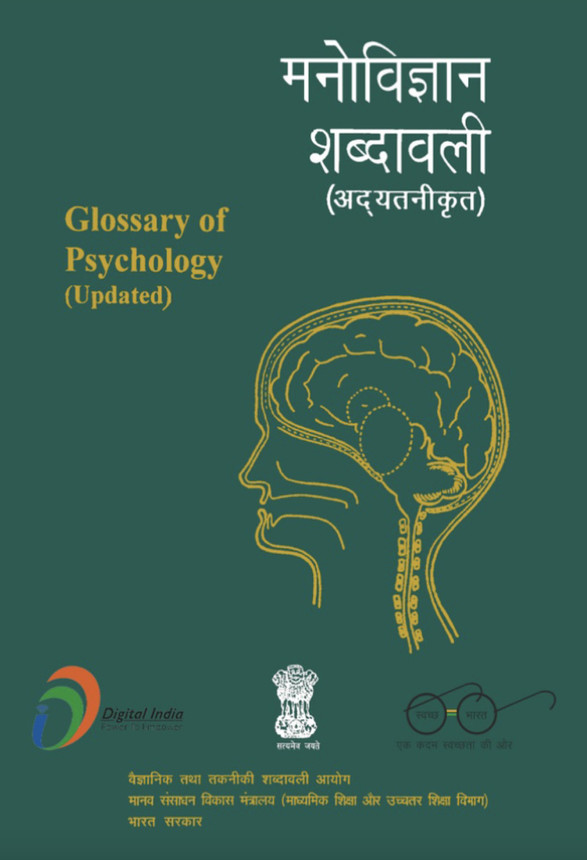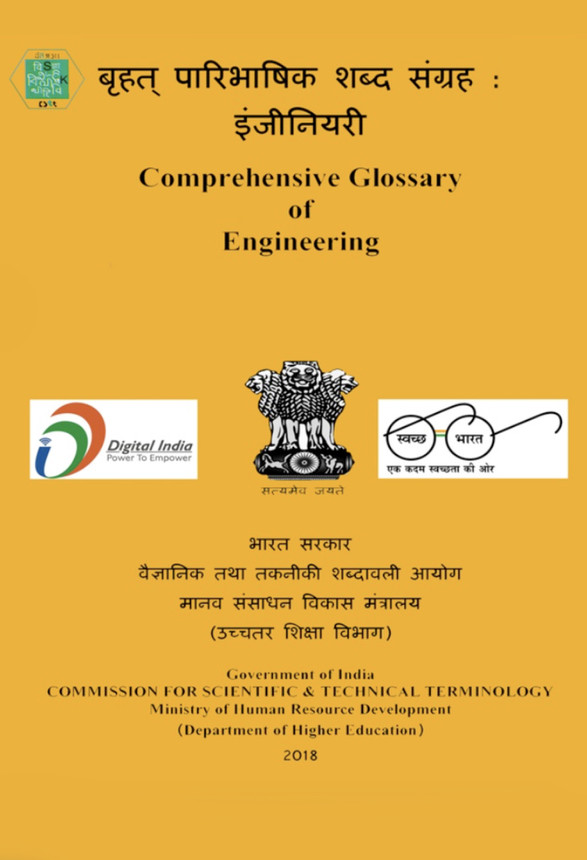ISRO’s Translator: How CSTT builds vernacular glossaries of engineering, scientific terms
R. Radhika | May 28, 2022 | 09:01 AM IST | 8 mins read
Engineering: The Commission for Scientific and Technical Terminology (CSTT) is responsible for keeping India’s technical lexicon in regional languages updated.

NEW DELHI: In March, a team of 32 subject experts and linguists from various state and central universities gathered at Maulana Azad National Urdu University in Hyderabad. Their task -- find Telugu equivalents for about 14,000 engineering terms.
Discussions and debates continued for seven days to create a “comprehensive glossary for engineering” in Telugu. It was the Commission for Scientific and Technical Terminology (CSTT), a relatively low-profiled body under the ministry of education, that organised the exercise.
Since its inception in 1961, during the terms of Rajendra Prasad as President and Jawaharlal Nehru as prime minister, the CSTT has been responsible for translating over nine lakh English words and terms into 22 Indian regional languages. However, the bulk of the new words thus coined are in Hindi.
The CSTT produces the definitive glossaries of scientific and technical terminology in regional languages which are used in textbooks, papers, and other academic and non-academic writing. It is the body that has decided, that “allotropy” in chemistry should be “avaroopta” in Hindi, “oworuupota” in Assamese, and “apararupata” in Odiya.
While the Chemistry Glossary in Odiya was first published in 2003, and updated in 2019, the Assamese version came in 2018.
With a renewed emphasis on teaching professional courses such as Engineering in regional languages, also proposed in the National Education Policy 2020, the job of making books and content available has fallen on the CSTT.
Also Read| MBBS Admission: Why NEET cutoffs vary widely for medical colleges at close NIRF ranks
While the CSTT’s main mandate is to ensure the generation of scientific terms in sync with growth in the field, it has also produced glossaries and definitional dictionaries for humanities and social sciences, commerce, agriculture, veterinary sciences, homeopathy, architecture, administration and more areas in Hindi and all regional languages.
AICTE and engineering
In March, the All India Council for Technical Education (AICTE) entered into an agreement with the commission to develop teaching and learning processes, faculty development, content creation, and textbooks. Under this agreement, they will also collaborate on boosting the Indian knowledge system in Hindi and regional languages and promotion of “localisation of technology” in the engineering curriculum.
In addition, the commission is entrusted with the task of ensuring the uniformity of terminology across all 22 official languages of India. Students, scholars, teachers, researchers, scientists and others, who pursue their educational, institutional and official work in Indian languages require standard technical terminology, explained MP Poonia, chairman, CSTT.
Also Read| No JEE Main needed? AICTE scheme allows ‘gifted students’ admission without exams
‘Pan-Indian’ terms
To facilitate inter-lingual communication and exchange of scientific information, there is a need to have a common collection of terms. The roots of technical terms in different languages across states are the same, leading to similar terms, said Poonia. After identifying these terms, the commission develops glossaries of “pan-Indian” terms.
“The sole mandate of this commission is that any new terms that come into existence in any language, say, German, English or French, have to be converted into Hindi and other regional languages,” he said. “The definition, logic and explanation have to be put together by the commission. Indian languages are based on the concept of Sanskrit. We follow the same Sanskritic theme while translating, defining and deciding the nomenclature of terms in regional languages. Each word is carefully deliberated upon by a team of experts and a majority opinion is adopted to create the glossary.” The glossaries are distributed free of cost and are also online.
Such standardisation also removes disparities in usage among various states where different equivalents are used for the same terms.
Also Read| AICTE panel caps annual BTech fee at Rs 1.89 lakh; MBA fee at Rs 1.95 lakh
Interestingly, CSTT is also responsible for identifying and removing obsolete words from the dictionary. “Sometimes, the Hindi translation of an English word is too complicated and people popularly use only the English version, then we are required to find an approximate translation of such words that best explains the term,” said Poonia. For instance, the Hindi word for computer— “sanganak” or “abhikalitra” – and mobile phone, “chaldoorbhaash”, are difficult to remember and were deleted from the computer science glossary. Depending on the popularity of an English term, either it is retained as it is or a hybrid version adopted. In Hindi, “guaranteeth” for “guaranteed”, “classiki” for “classical” or “codekaar” for “codifier” are used for simplicity, utility and precision.
 A Psychology glossary published by CSTT
A Psychology glossary published by CSTT
Since the scientific and technical terms can best be understood in context, the commission also prepares “definitional dictionaries” in all subjects. These conceptually explain each word in English along with its equivalents in regional languages. Experts of each language, scholars of the respective fields, teachers, researchers and scientists in higher education are invited to collaborate on this.
Also Read| IIT Patna CSE team working on curbing hate speech online. First stop: Twitter
“While we finalise certain terms, experts of the respective languages are consulted to arrive at the most appropriate translation. Discussions are held on its genesis and most importantly, its application of it in practice. This is important because some terms have different meanings in different disciplines. For instance, in physics, “charge” means electrical charge whereas, in civil society, it is a legal [term meaning allegations]. So, for every word there is a science on how it will be utilised in a sentence,” explained Poonia.
However, not every term requires translation. “Some terms are standard and accepted globally. These terms cannot be translated and are kept as they are,” said Poonia. For instance, symbols written in the Roman script are kept as they are, but abbreviations may be written in Devanagari – the Hindi script. For example, in common weights and measures, and abbreviation like “cm” for centimetre will be used in Hindi, but as “से.मी.”
“There are also terms which did not exist, say 10 years ago, but are popular today like Artificial Intelligence and Virtual Reality. These are also kept the same,” Poonia added.
ISRO’s ‘Space science glossary’
Apart from collaborating with AICTE, the CSTT has also recently worked with Bhabha Atomic Research Centre (BARC) and Indian Space Research Organisation (ISRO). “From time to time, the commission receives demands for updating the terms and dictionaries from different sectors. We have recently created a number of words for BARC and ISRO. Similarly, the commission deployed experts for these demands to decide the meaning, application or create a glossary of words,” said Poonia.
Also Read| Reforming MTech: IITs, other engineering colleges are launching PG degrees in new fields
Due to innovation and new discoveries, both organisations required the “space science glossary” updated which is done by the commission on a regular basis. The commission updated ISRO’s glossary in 2016 and again in 2018. It includes words like “vaayugatik” for aerodynamics, “prakshepik” for ballistic, and “aashankan” for calibration.
Engineering gets 45,000 words
As envisaged in NEP 2020, the AICTE last year allowed 19 engineering colleges across eight states to start B.Tech courses in regional languages -- Hindi, Marathi, Tamil, Telugu, Bengali
and Kannada.
Also Read| NAS 2021: Punjab, Rajasthan top performers across school levels, subjects
To enable this, the AICTE is developing textbooks in regional languages. Poonia, who is also the vice-chairman of AICTE, said that the CSTT provides only the technical terms and AICTE uses them to create textbooks. “If you are publishing books in regional languages, you need new words that align with these regional languages. We are working on 45,000 engineering and technology words. We have identified the common words that are used commonly in engineering disciplines,” he said.
Most of these words have been translated into Hindi; the next task is to translate them into the 22 official languages. “So far, the commission has completed almost 60 percent of the work. In Odia and Marathi, we have already converted 45,000 words for engineering and technology disciplines,” said Ashok N Salwetkar, assistant director, CSTT, who is currently overseeing the translation of engineering books in Punjabi. A team of AICTE model curriculum experts, technology experts and the language experts will together work on creating content for regional language books.
 Comprehensive Engineering glossary created by CSTT
Comprehensive Engineering glossary created by CSTT
Using artificial intelligence
On its own, the AICTE uses an AI tool to translate text from English to other languages. The tool was specially developed in-house to allow for a standard format across languages.
“There are so many formulas, graphs, figures, etc. in engineering books. If you translate a table, for example, on Google Translate, the content format gets distorted in translation. The beauty of our AI tool is that it takes images of the figures, graphs and tables and those images are inserted into the translated version of the content. The format remains unchanged,” said Poonia.
Also Read| Vedic Maths, Astrology, Anti-Vaxxers: This engineer calls out pseudoscience on YouTube
The tool also identifies the most popular or frequently-used terms in a discipline and in all regional languages. This is done to popularise terms developed by CSTT and at the end of every book, a small dictionary of the most common words is placed with digital links.
As a part of the collaboration, AICTE and CSTT are also making region-specific content. Until now, engineering textbooks focused on mainstream or commonly-available technology. To remedy that, the new textbooks will now include technology innovated in rural areas. “There are technologies that are popular in remote areas, especially in agriculture sector, which operate on low costs and cater to local needs. These usually do not have an English term but are known to people in their respective regional languages. If any start-up in a local area innovates and creates such technologies, it must be added to the books,” said Poonia.
School textbooks
Not just higher education, the commission also caters to requirements at the school level. The commission has prepared several subject-wise glossaries for the National Council of Educational Research and Training (NCERT), State Councils of Education Research and Training (SCERT) and National Institute of Open Schooling (NIOS).
“Ours is the only country where the language of a student and the language of studies is different. A child learns language from their family but it changes entirely in schools. An average child of age three has at least 1,000 words in their dictionary but it gets erased entirely in schools. Our children end up mugging up,” said Poonia. “Learning will happen only when the children get to learn what they see and hear at home is also used at schools. Our target is to make learning effective and to enhance understanding so that it helps in the application of knowledge in real life.”
Follow us for the latest education news on colleges and universities, admission, courses, exams, research, education policies, study abroad and more..
To get in touch, write to us at news@careers360.com.